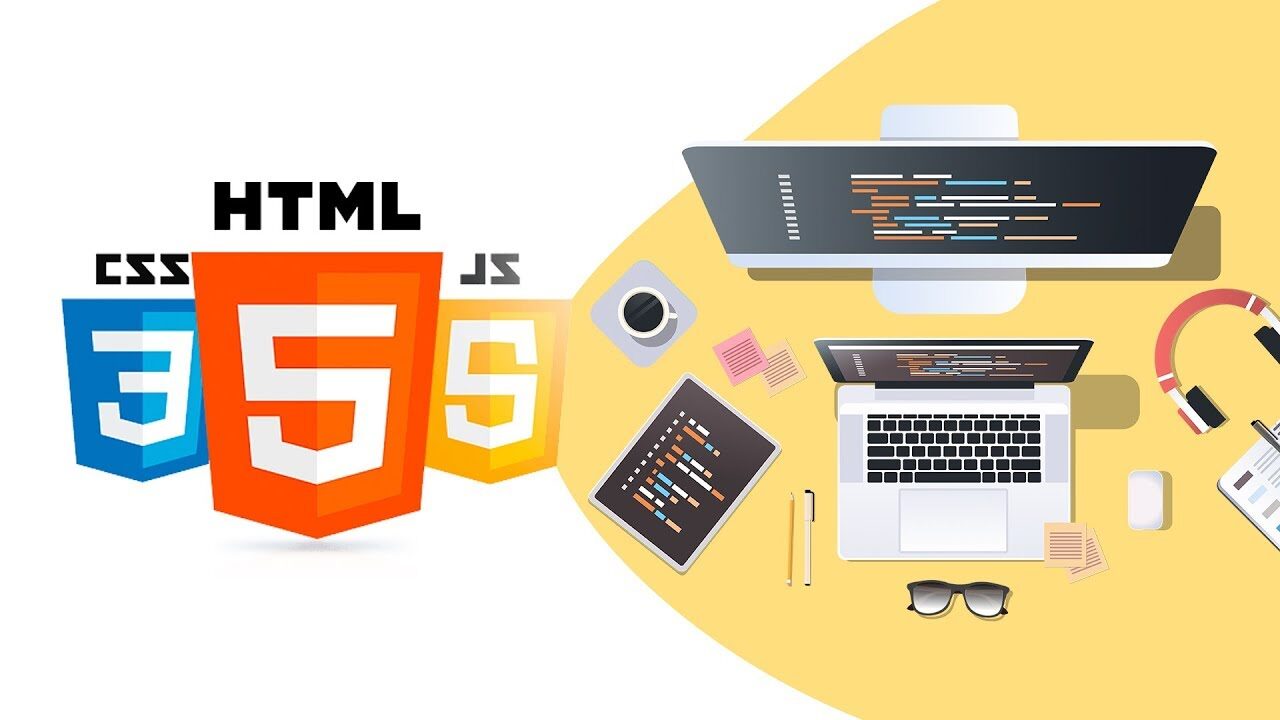If you’re interested in learning how to code, there’s no shortage of resources available. From programming languages like Python and JavaScript to interactive tutorials designed for beginners, anyone can get started in coding without prior experience. For absolute beginners, the right coding tutorials can simplify complex concepts, making it easier to learn to code from scratch. In this article, we’ll introduce five must-try coding tutorials that provide the foundation for web development, programming basics, and much more.

Why Coding Tutorials Are Perfect for Beginners
For those new to coding, structured tutorials offer a clear path to learning. These resources break down complicated concepts into manageable lessons, making them ideal for programming beginners. Additionally, coding tutorials often include interactive exercises that allow you to apply what you’ve learned immediately. This hands-on approach is invaluable for beginners, helping build confidence and practical skills.
Whether your goal is to dive into web development, Python programming, or JavaScript programming, these tutorials will guide you through the essentials.
1. freeCodeCamp: A Comprehensive Platform for All Skill Levels
freeCodeCamp is a popular platform for anyone who wants to learn to code, and it’s entirely free. This platform offers a series of interactive coding tutorials that cover a wide range of programming languages and skills, from HTML and CSS to JavaScript and Python programming.
Key Highlights:
- Structured Curriculum: freeCodeCamp’s curriculum is well-structured, making it one of the best programming courses for beginners. It’s designed to take you from coding from scratch to building full-fledged projects.
- Hands-On Projects: Each lesson culminates in a project, allowing you to build practical applications and create a portfolio.
- Certifications: While the courses are free, you can earn certifications in areas like responsive web design and JavaScript programming by completing the curriculum.
With its project-based learning approach, freeCodeCamp is an excellent choice for those looking to learn coding fundamentals while gaining real-world skills in web development.
2. Codecademy: Interactive and Beginner-Friendly
Codecademy is well-known for its beginner-friendly courses in various programming languages, including JavaScript, HTML, CSS, and Python programming. Although Codecademy offers a paid version, its free tier provides a wealth of foundational content, ideal for those testing the waters in coding.
Key Highlights:
- Interactive Lessons: Codecademy’s interactive coding tutorials allow you to code directly in your browser, receiving instant feedback.
- Course Variety: With a wide selection of courses, you can start with programming for beginners and progress to more advanced programming concepts.
- Personalized Paths: Codecademy offers career paths, which are curated learning experiences that guide you through specific tracks like web development or data science.
For absolute beginners, Codecademy’s hands-on approach and interactive coding exercises make it easier to understand complex topics.
3. Khan Academy: Free, Accessible Learning
Khan Academy offers a range of online coding resources, perfect for both children and adults. While its coding section is smaller compared to other platforms, Khan Academy covers the basics of web development, including HTML, CSS, and JavaScript. These tutorials are particularly useful for beginners who prefer a video-based learning experience.
Key Highlights:
- Free Content: All of Khan Academy’s courses are completely free, making it accessible for everyone.
- Interactive Exercises: Like Codecademy, Khan Academy offers coding tutorials that let you practice code in your browser.
- Video Lessons: The platform features video lessons that explain coding concepts visually, which can be helpful for programming beginners.
Khan Academy is a great starting point if you’re looking to learn the basics of web development or introduce coding for kids.
4. MIT OpenCourseWare: University-Level Programming Courses
For those looking for a more in-depth introduction to coding, MIT OpenCourseWare (OCW) offers free access to university-level courses. While the content is more challenging, it’s ideal for beginners who want a rigorous understanding of programming concepts.
Key Highlights:
- Comprehensive Curriculum: MIT’s courses cover a wide range of programming languages, including Python programming and Java.
- Self-Paced Learning: Unlike coding bootcamps, MIT OCW allows you to learn at your own pace, ideal for self-learners.
- Advanced Topics: After covering the basics, you can dive into advanced programming subjects like algorithms and data structures.
If you’re looking for free, college-level programming resources, MIT OCW is an excellent option that provides depth beyond most beginner tutorials.
5. The Odin Project: Project-Based Web Development
The Odin Project is a free, open-source curriculum designed to help beginners build a strong foundation in web development. It covers HTML, CSS, and JavaScript, making it ideal for those who want to focus on front-end development.
Key Highlights:
- Project-Based Learning: The Odin Project emphasizes real-world projects, allowing you to build a portfolio as you learn.
- Community Support: The platform includes a community of learners and mentors, making it easier to find support and collaborate.
- Full Curriculum: Covering both front-end and back-end development, this curriculum is comprehensive and ideal for beginners.
The Odin Project’s focus on practical application makes it one of the best free resources for those interested in building websites from scratch.
How to Choose the Right Coding Tutorial
With so many options, choosing the right coding tutorial can be challenging. Here are a few tips to help you decide:
- Define Your Goals: Determine whether you want to focus on web development, data science, or general programming. This will help you choose tutorials with the right focus.
- Consider Your Learning Style: Some people learn better through interactive coding tutorials, while others prefer video-based or project-oriented resources.
- Start Small: Begin with tutorials aimed at programming for beginners before diving into advanced programming topics. This will help you build a strong foundation.
- Look for Community Support: Resources with active communities, like freeCodeCamp and The Odin Project, provide additional help and motivation as you learn to code.
Benefits of Learning Coding Online
Learning to code online has many advantages, especially for beginners:
- Flexibility: Online coding tutorials allow you to learn at your own pace, making it ideal for self-learners or those with busy schedules.
- Accessibility: With platforms offering free programming resources, anyone can get started without a financial commitment.
- Variety of Skills: Online resources cover a wide array of programming languages, from Python programming to JavaScript programming, catering to a range of interests.
For those who are serious about pursuing a career in tech, consider transitioning from free resources to structured programming courses or even a coding bootcamp. These options often provide programming certification and can make you job-ready.

Start Your Coding Journey Today
Coding is a valuable skill with endless applications, and starting with the right tutorials can set you on the path to success. The five coding tutorials listed above are beginner-friendly, comprehensive, and completely free, making them perfect resources for anyone looking to learn to code. Whether you’re interested in web development, creating personal projects, or exploring a new career, these tutorials provide the essential programming skills you need to begin.
With commitment and practice, you can build a solid foundation and progress to more advanced programming topics. Explore these free resources and take the first steps in your coding journey today.



